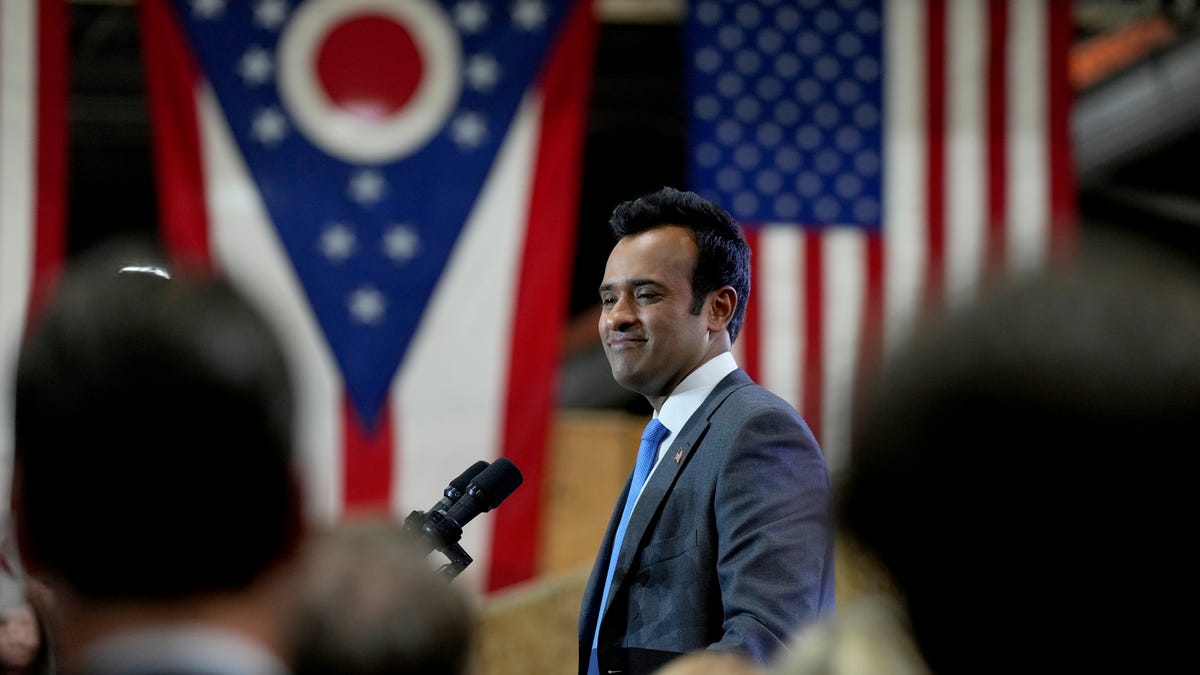Lake Erie Rename? Vivek Ramaswamy's Proposal Sparks Debate
A controversial proposal to rename Lake Erie has ignited a firestorm of debate, with Republican presidential candidate Vivek Ramaswamy at the center of the controversy. His suggestion, though seemingly minor, touches upon complex issues of historical accuracy, environmental protection, and the very nature of place names. This article delves into the details of Ramaswamy's proposal, the ensuing backlash, and the broader implications of renaming geographical features.
Ramaswamy's Proposal: A Call for Historical Accuracy or a Political Stunt?
Vivek Ramaswamy, during a recent interview, suggested renaming Lake Erie to reflect its original indigenous name. While the specific name he proposed remains unclear, the act of suggesting a rename has sparked significant discussion. The move has been interpreted by some as a genuine effort to acknowledge the historical contributions of indigenous populations to the region, and others as a politically motivated distraction.
The Historical Context: Indigenous Names and Colonial Erasure
Lake Erie, like many geographical locations across North America, boasts a rich indigenous history predating European colonization. Various indigenous nations inhabited the Lake Erie basin for millennia, each with their own names and stories associated with the lake. The current name, "Lake Erie," derives from the Iroquois Confederacy's name for the lake, Erie, meaning "long tail." However, other nations also held significant ties to the lake, and their perspectives often get overlooked. Ramaswamy's proposal, therefore, aims to rectify this historical erasure, potentially bringing to light the names and histories of other indigenous communities.
Environmental Implications: More Than Just a Name
The debate extends beyond historical accuracy. Renaming Lake Erie could have significant implications for environmental protection efforts. The current name is deeply ingrained in tourism, research, and environmental policy. A name change could lead to confusion, hindering coordinated conservation efforts and impacting branding initiatives aimed at protecting the lake's fragile ecosystem.
The Backlash: Critics and Supporters Weigh In
Ramaswamy's proposal has faced considerable criticism. Opponents argue that changing the established name could be costly, disruptive, and ultimately unnecessary. They point to the existing recognition of indigenous history through other means, like historical markers and educational programs.
However, supporters counter that renaming the lake is a symbolic but crucial step towards reconciliation and acknowledging the indigenous heritage that is often ignored. They argue it is a powerful way to redress historical injustices and promote a more inclusive understanding of the region's past.
The Cost of a Name Change: Practical Considerations
The practical implications of renaming Lake Erie are substantial. Updating maps, signage, official documents, and countless other materials would require significant financial resources and time. The economic impact on tourism and related industries also warrants serious consideration.
The Future of Place Names and Indigenous Recognition
The debate surrounding Lake Erie's potential renaming highlights a larger conversation about the representation of indigenous populations in geographical nomenclature. Across the country, efforts are underway to replace colonial-era names with indigenous names, fostering a more accurate and inclusive historical narrative. This ongoing process necessitates a careful balance between historical accuracy, practical considerations, and community engagement.
What are your thoughts on Ramaswamy's proposal? Share your opinions in the comments below!
(Note: This article is for illustrative purposes and does not endorse or oppose any specific viewpoint. The lack of a specific indigenous name mentioned is intentional, as further research is needed to accurately and respectfully represent the various indigenous perspectives on this matter.)
